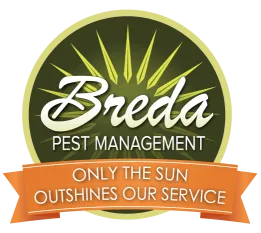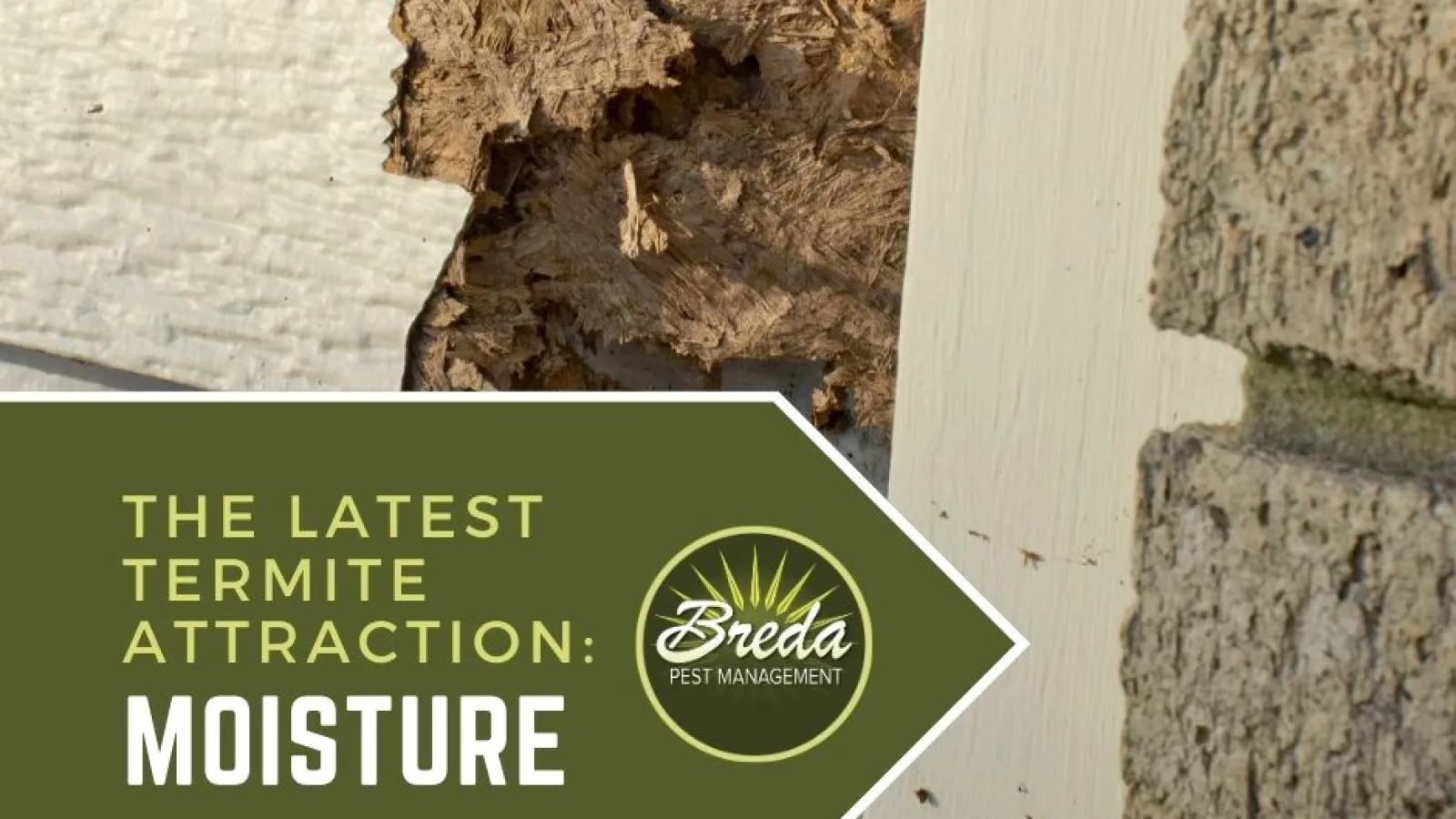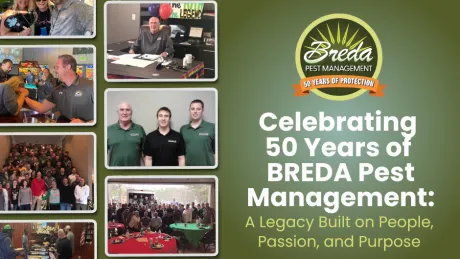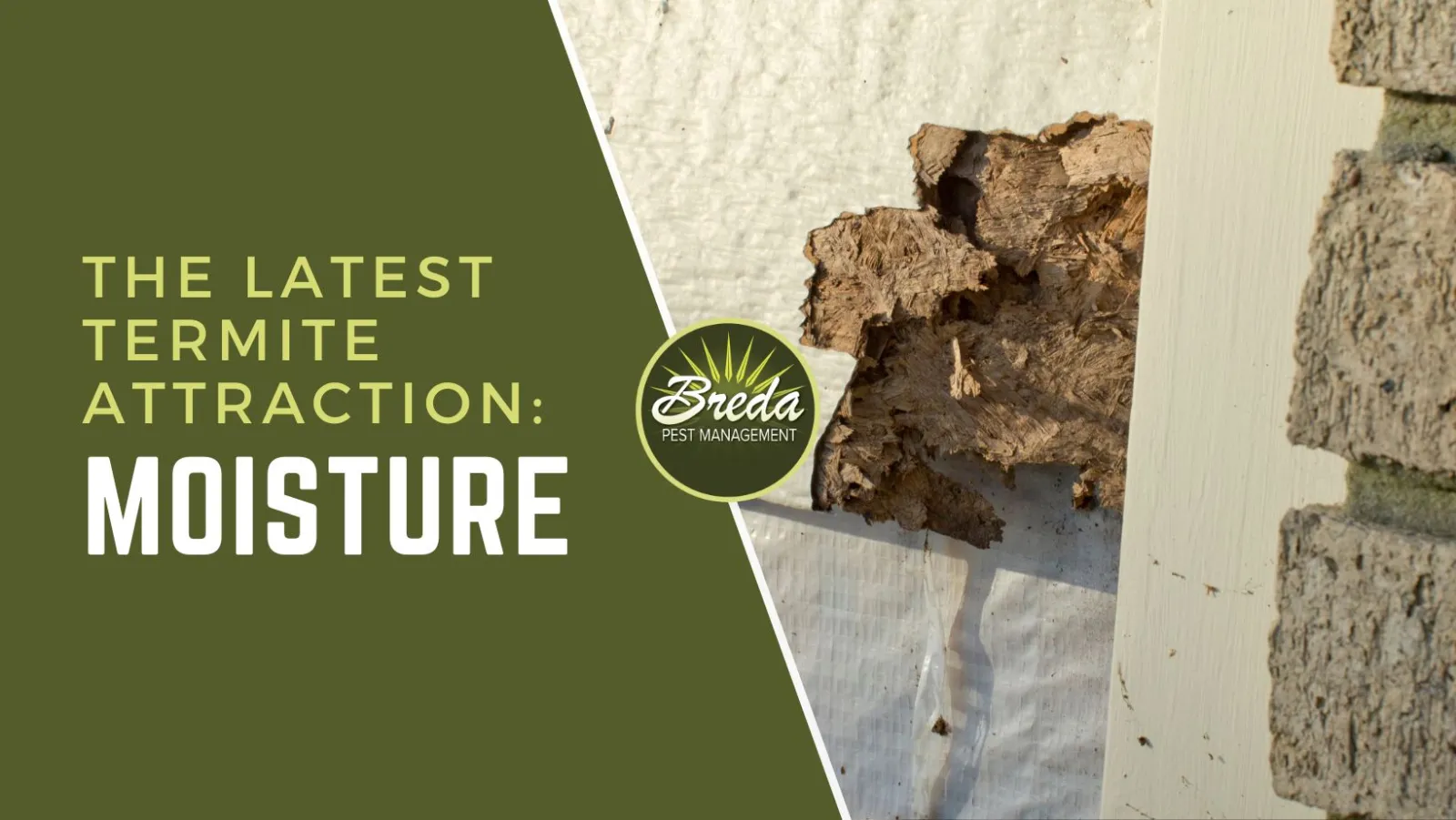
Learn how to eliminate the risk of termites in and around your house
We often refer to termites as "the silent destroyers" because they can cause extensive damage to homes and properties for months or even years before you notice them. While many environmental factors can attract termites, one often overlooked attraction is moisture. Let's explore exactly how moisture affects termite infestation, and discuss practical steps you can take to protect your home.
Termites thrive in moist environments as they require a constant water source for survival. When excess moisture is present, termites are drawn to the area, making it easier for them to establish colonies and cause havoc in your home. Here's how moisture plays a role in termite infestation:
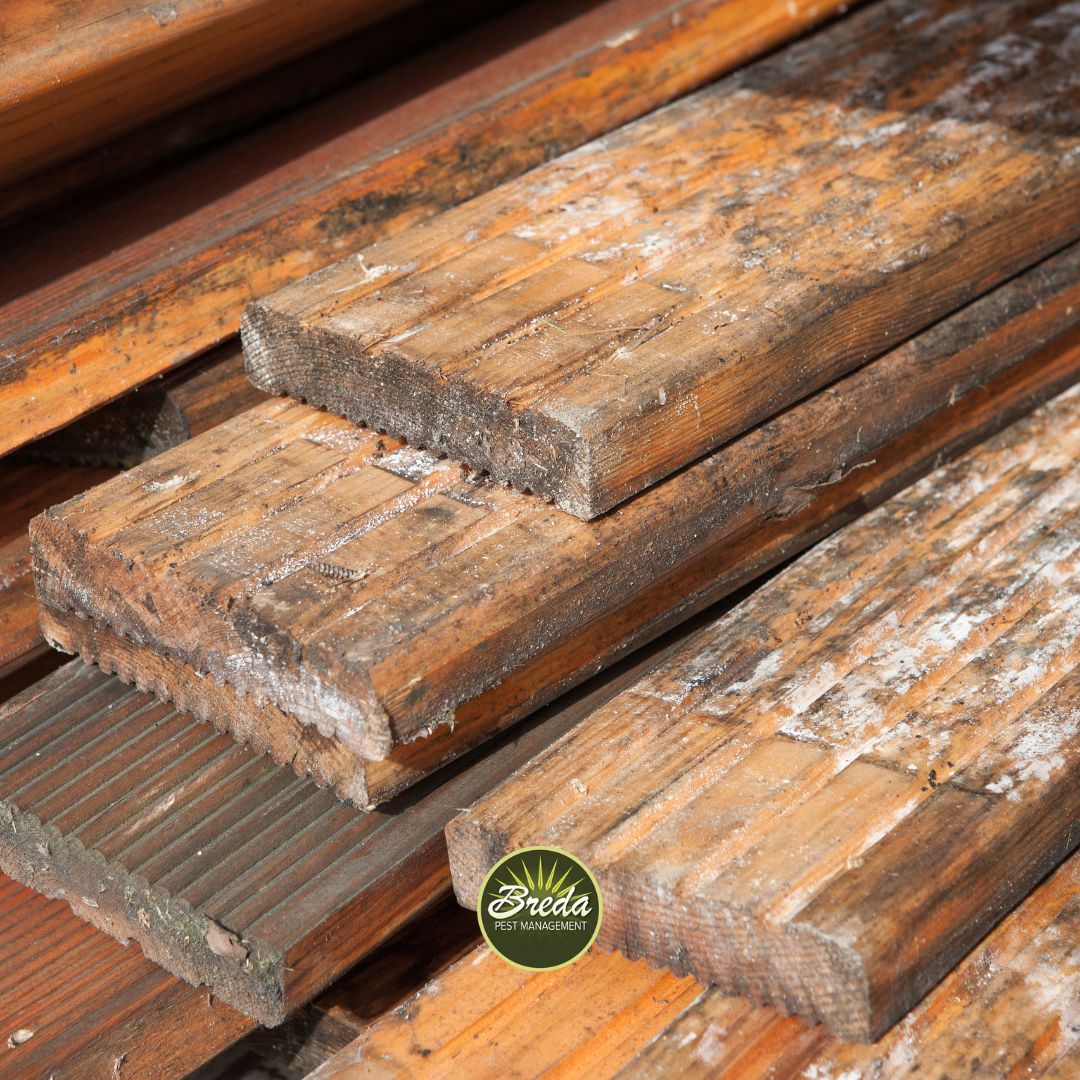
Damp Wood: The Perfect Banquet for Termites
Moisture causes wood to retain water, making it an ideal food source for termites. Damp or decaying wood becomes easier for termites to consume and digest, providing them with the sustenance they need. As a homeowner, it is essential to regularly inspect your property for signs of water damage and promptly address any issues to prevent termite infestations.
Moist Soil: A Friendly Neighbor for Termites
Termites build their colonies underground, where they can find food, water, and protection. Moist soil creates an environment that is highly favorable to termite colonies. If the soil surrounding your property remains constantly damp, termites can easily establish their colonies nearby and gradually make their way across your entire lawn.
Signs of Moisture Attracting Termites
It's crucial to recognize the signs of moisture-related termite attraction. Here are some common indicators to watch out for:
Water damage: Look for signs of leakage, such as water stains on walls or ceilings. Water damage can provide the moisture that attracts termites.
Damp basements and crawl spaces: Check these areas regularly for excess moisture, as they can create ideal conditions for termite infestations.
Condensation: Keep an eye out for condensation on windows or other surfaces, as it indicates high humidity levels that can attract termites.
Preventing and Controlling Moisture
To prevent termite infestation due to moisture, it is crucial to take these proactive measures around your home:
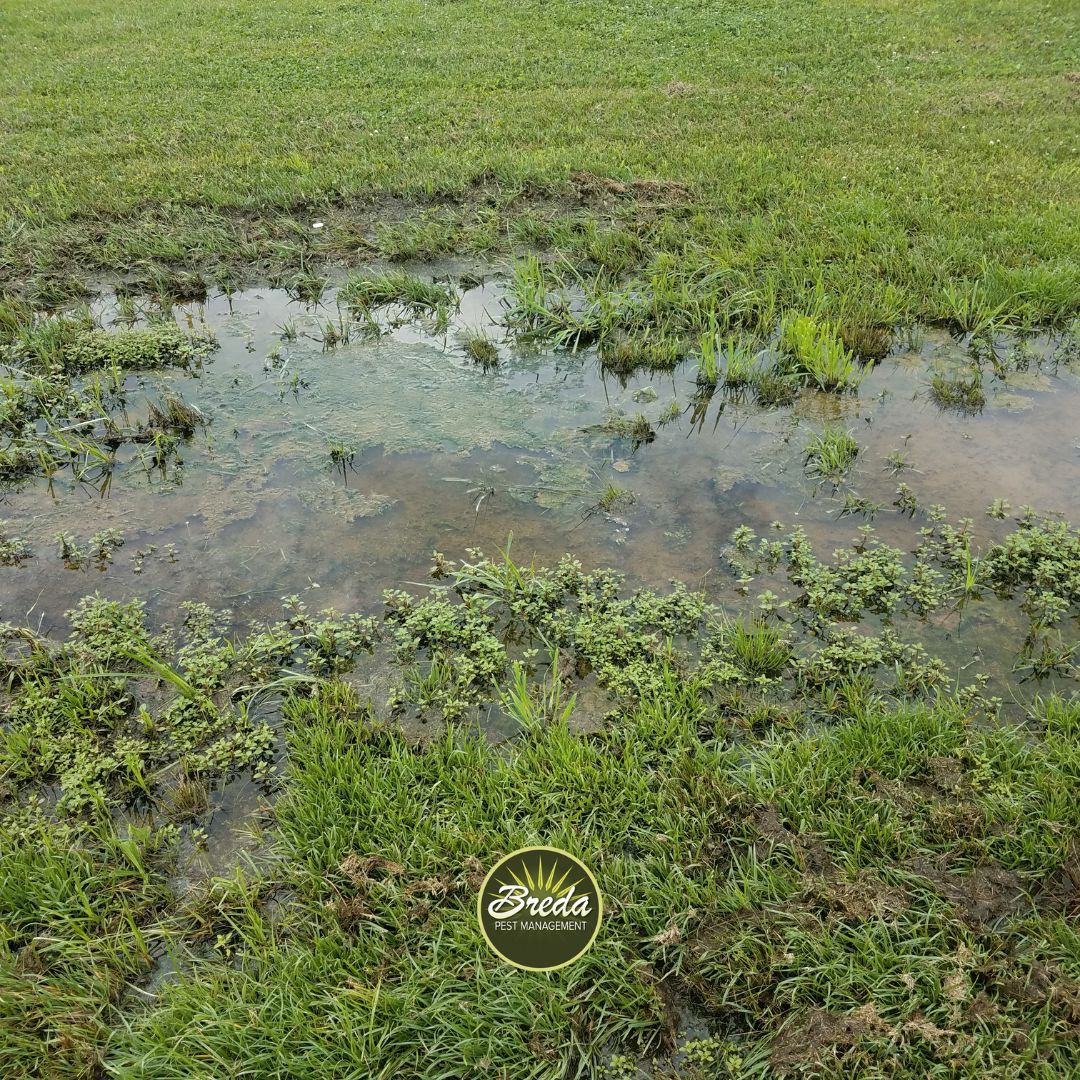
Repair any leaks: Regularly inspect and fix any leaks in pipes, faucets, or roof areas to prevent moisture buildup.
Improve ventilation: Ensure proper ventilation in crawl spaces, attics, and basements to reduce moisture levels.
Maintain gutters and downspouts: Keep gutters clean and ensure downspouts direct water away from the foundation to prevent water accumulation near your home.
Remove standing water: Promptly remove any pools of standing water around your property, as they can attract termites.
Inspect wood regularly: Regularly inspect wooden structures for signs of moisture damage or deterioration. Replace any affected wood promptly to prevent termite access points.
Consider a termite barrier: Installing a termite barrier around your home's foundation can act as a deterrent, preventing termites from entering.
Professional Termite Inspection and Control
While these preventive measures can significantly reduce the risk of termite infestation, it's still important to invest in professional termite inspection and control. Termite pest control experts can identify signs of termite activity that may go unnoticed and recommend effective treatment options to mitigate the risk.
At BREDA Pest Management, we use infrared cameras to pinpoint any moisture around your house so we can zero in on conducive areas where termites thrive. Infrared cameras show the differences in thermal patterns, and then a moisture meter is used to differentiate between cold air and moisture. The moisture meter will also tell us how saturated an area is. BREDA invested in this technology over two decades ago, and it continues to be a powerfully effective termite inspection method.
Moisture is a significant termite attraction that homeowners often overlook. By understanding the relationship between moisture and termite infestation, homeowners can take proactive steps to protect their homes. Regular lawn maintenance, prompt structural repairs, and attention to moisture levels in and around your house can go a long way in preventing these destructive pests from invading. Remember, when it comes to protecting your house from termites, prevention is always better than cure.
If you're tired of wondering what the pests in or around your home are doing and just want them gone, don't hesitate to give us a call. The BREDA Guarantee promises to protect your home and keep it protected—no matter the circumstances. Schedule an inspection online or give us a call at 770-466-6700.
